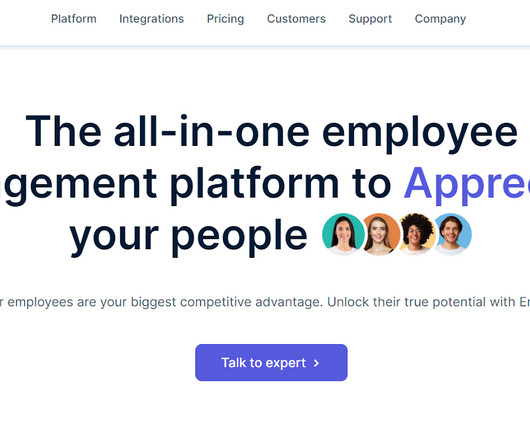Strategy Not Part of Your Rep? Here's How to Change Their Minds
Compensation Cafe
FEBRUARY 20, 2020
In comparison, strategic insights occur when you put your compensation practices and philosophy in a new light, where the illumination falls on the challenges your company will face tomorrow. Skill gaps are becoming a problem across industries and they are predicted to grow in the coming years. Do you have it now?























Let's personalize your content